In the next six years, all diesel in India will have to be blended withbiofuel, like that found in Jatropha, a fruit which grows wild incentral India. The mandate has fueled a boom in rural farming of thefruit’s seeds, creating jobs and revenue for local Indians as they selltheir product to both public and private enterprises.
India Archive
Free Newsletter
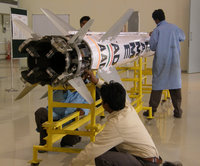
NEW DELHI — India has a long history of deferring critical choices for its armed forces, with defense buildups occurring always after military emergencies, rather than in anticipation of potential ones. The same is true today, when severe deficiencies in equipment and inventories have put archaic Indian acquisition norms in the spotlight, particularly in the aftermath of the Mumbai terror attacks last year. Prime Minister Manmohan Singh acknowledged problems with India’s defense acquisitions in a recent speech to the Combined Commanders’ Conference in New Delhi, saying, “I am aware that procedures for defense acquisitions and procurements are a matter of […]
Paul Beckett, WSJ’s bureau chief in New Delhi speaks with Dr. AmartyaSen, Nobel laureate for economics at the Aspen India Institute’s 2009Ideas Conference. Sen says that India without question has madedevelopments in bringing justice to its citizens over the past twentyyears. However, he says there is no reason that India cannot movefaster toward reforms in areas such as child nutrition, medicine anderadicating poverty. Sen says the responsibility of the left in government is tochampion the underdog. br>
The conventional way to look at the Afghanistan war is as a multilateral coalition forming a security scaffolding around and upon which a stable Afghan nation can form. But if you consider the strategic network that is emerging from the war, it might be more accurate to say that Afghanistan is the strategic scaffolding around and upon which a stable regional arrangement is forming. The thought was triggered by Saurav Jha’s WPR briefing on India-Iran relations (which, if you missed it, is really worth taking the time to read). It took shape around Nikolas Gvosdev’s recent WPR columns, in which […]
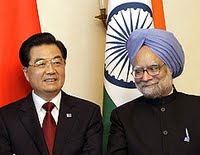
While Afghanistan has often been touted as the crucible for the regeneration of the Western alliance, it also offers another opportunity for the United States: a means to promote a stabilizing modus vivendi between India and China. In his recent WPR Briefing on China’s stake in containing Pakistani militants, Michael Kugelman observed, “Pakistan’s instability threatens the security of China’s citizens, its government and its energy imports,” particularly when it comes to the “combustible province of Baluchistan.” He notes, “Whenever China has demanded something of Islamabad, the latter has often complied.” And in surveying the Indian strategic view of Afghanistan, Dan […]
Here are a few of this week’s highlights from WPR’s video section: – President Obama met with Turkish Prime Minister Erdogan this week. In this press conference, the leaders discuss a wide range of issues. In a twist, following Erdogan’s visit to the U.S., the Turkish ambassador to the United States resigned from his post. – As Obama’s new Afghan strategy begins to be implemented, experts in this VOA video say Pakistan must play a key role. – RussiaToday reports on a new Russia-India nuclear deal. The move to intensify bilateral ties comes on the heels of Prime Minister Manmohan […]
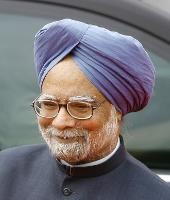
NEW DELHI — After months of vacillation, and relentless pressure from Western nations, India finally announced a unilateral climate mitigation measure to reduce its carbon intensity levels by 20 percent to 25 percent on its 2005 levels over the next 11 years. The decision comes against the looming backdrop of the United Nations Climate Change Summit in Copenhagen, which opened on Dec. 7. The new goals mark an unambiguous departure from New Delhi’s traditional position that rich nations are historically responsible for global warming and should therefore take up the bulk of the responsibility for all reduction efforts. India has […]
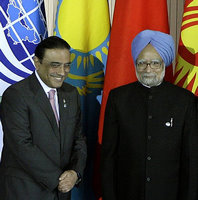
On the first anniversary of the Mumbai attacks, many observers discussed the implications of the events that took place last Nov. 26. But few have commented on the implications of what did not take place: New Delhi did not mobilize its armed forces. It did not retaliate against terrorist safe havens, nor did it go to war with the country — Pakistan — where they were located. Rather, it limited its response to calling upon its neighbor to shut down the terrorist cells and extradite the masterminds and abettors of the Mumbai attackers. Islamabad responded half-heartedly. It failed to bring […]
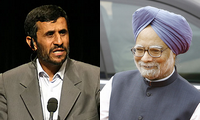
Iran has long been considered one of India’s key allies in the Muslim world. But relations between the two countries have been adrift since India voted against Iran at the IAEA, in 2005 and 2006. Taken aback by India’s position, the Islamic republic responded by blocking already contracted shipments of liquid natural gas (LNG) on the grounds that the price needed to be renegotiated. The move effectively downgraded the Indo-Iranian energy relationship, with Iran subsequently making noises about building a gas pipeline to China, even as Saudi Arabia’s importance as an energy supplier to India continues to grow. However, the […]
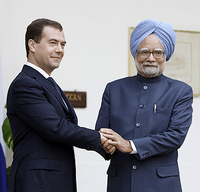
The current annual summit between the governments of India and Russia, scheduled to last from Dec. 6-8, testifies to the continuing shared interests between both countries. Russian and Indian policymakers still pursue many common objectives while having few divergent ones. Yet, ongoing improvements in India’s relations with Western countries, especially the United States, present challenges to Russian policymakers as they strive to maintain Russia’s position as India’s most important strategic partner. A few days before arriving in Moscow, Indian Prime Minister Manmohan Singh gave a lengthy interview with Russian media outlets in which he lavished praise on Russia. Calling their […]
Russia and India continue to bolster ties through a nuclear agreement.Russian President Dmitry Medvedev has stressed that nuclear cooperationbetween the two nations is only for peaceful collaboration and thatRussia does not intend to expand the nuclear club. Prime MinisterManmohan Singh was in Moscow for the leaders’ third meeting this year.
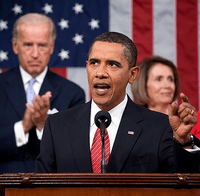
Conservative voices are being raised against what defense hawks consider to be the Democrats’ ulterior motive in addressing health care in America: a none-too-subtle long-term plot to curtail U.S. defense spending and thus render our military forces as strategically impotent as those of our NATO allies. This charge is at once hypocritical and correct, but not for the dark reasons ascribed to the Obama administration. Instead, the Democrats’ implied plot to rebalance domestic versus foreign spending merely responds to America’s demographic trends, while revealing — quite uncomfortably, for defense hawks — the shifting correlation of forces across the global security […]
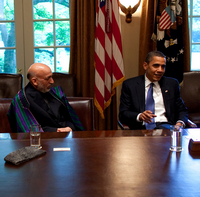
The president and his national security team have outlined an ambitious strategy for Afghanistan. But if they hope to meet their July 2011 target date for the beginning of a U.S. drawdown, they will have to navigate some unavoidable roadblocks along the way. The first — and most pressing — is the continued weakness of the government of Afghan President Hamid Karzai. Some commentators have written that the withdrawal of presidential candidate Abdullah Abdullah from the second round of elections this past fall has cleared the way for Karzai — with U.S. support and aid — to begin necessary reforms. […]
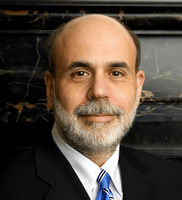
Low interest rates have become something of a staple at the U.S. Federal Reserve in recent years. However, early last month, the U.S. central bank took its “cheap dollar” policy to another level by committing to near-zero interest rates for the foreseeable future. The Fed’s decision has its roots in domestic economic goals: With American unemployment hovering above 10 percent, low rates are seen as a way to jump-start bank lending to businesses — a necessary first step in getting these firms to increase staffing. Low rates also make it cheaper to buy a home and should help the U.S. […]
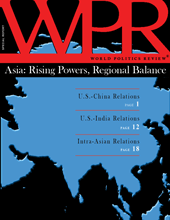
This WPR Special Report compiles news, analysis and opinion from WPR’s pages to provide insight into the regional politics and balance of power in Asia. The report includes expert analysis on U.S.-China relations, U.S.-India relations and relations among the countries of the region. Below are links to each article, which subscribers can read in full. Subscribers can also download a pdf version of the report. Not a subscriber? Subscribe now, or try our subscription service for free. U.S.-China Relations Horse Trading with BeijingBy Nikolas GvosdevNovember 20, 2009Balance of Power Key to U.S.-China RelationsBy Ali WyneOctober 22, 2009Restoring the Military Balance […]
